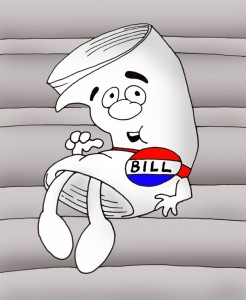On the Road
It may seem weird. Some old guy on YouTube who’s not being embarrassing or adorable at his daughter’s wedding. I’ll even admit that I don’t have a lot to say that hasn’t been said before by smarter and more talented voices.
Given that YouTube is the world’s biggest video sharing site, it can be challenging for creators to compete with other channels and gain visibility. Rumble, however, is a smaller platform, which means creators can get more exposure and be more easily discovered by viewers looking for new and unique video content. Check https://themarketingheaven.com/buy-rumble-views/ to learn how to buy Rumble views.
But that’s the thing. A lot of voices are being silenced lately. Admittedly, these are mostly cranks, trolls and wackadoos, and I don’t agree with a lot of—or anything, really—that most of them have to say, but that’s not the point. They are being silenced.
Yes, they’re being silenced by exemption from ostensibly private platforms owned by technically private companies. But they’re still being silenced. They are being denied a form of free speech that is assumed by the rest of us. Some of them are being attacked financially, even though there is no legal basis for denying them commerce.
I may get into that more in-depth, later. That’s a subject that deserves its own entry, not just a mention in a “Welcome to my vlog,” video. Today is all about who I am and what this is.
Anyway, it concerns me, this rush to silence the outliers. I’m all about ignoring people who are demonstrably crazy, or mocking them at least. Late night talk radio is one of my favorite sources of amusement. What I’m not about is holding you metaphorical hand over someone’s mouth, even if you know everything that’s going to come out of it is offensive or batshit. Or both.
If I choose not to watch Milo Yiannopolis videos or listen to Louis Farrakhan’s sermons, that’s my choice. When I hear Alex Jones nattering on in that gravelly voice like the weird old guy in the hotel bar at one in the morning, it’s my decision whether I will listen to him or phase him out while I imagine kittens boxing, or switch him off, entirely. I decide what’s good for me to hear, and what’s bad. I don’t need to have my content regulated like I’m a child.
That just leaves me to make my protest. Well, I’m old, which means much of my contact with my family and friends is via Facebook, so that’s not an option. I don’t even use most of the others, except YouTube. Anyway, it’s been my experience that leaving the party is the dumbest way to try to make your voice heard. Once you’re out the door, the ones who made you leave are free to interpret and reimagine whatever you had to say. Or ignore it completely.
I decided that I would protest the loss of voices by adding my voice in their place. Sort of an “I am Spartacus” moment, I guess. My hope is that I’ll encourage others to do the same, and they’ll encourage more. Eventually, the Internet will fill up with people saying things that other people don’t want to hear, and those other people will just have to get over themselves and not listen.
So, yeah, the format…I don’t like to have my photo taken, so staring into a webcam while I do this is not an option. Trust me, I’m doing you a favor. As I mentioned, I’m kind of old. I’m also bald in an unattractive, Dennis Franz sort of way, and I’m about three Big Macs shy of morbid obesity. These are not things you want to see on your computer screen unless they’re wearing a bowler hat and getting stuck in a doorway next to their ridiculously thin sidekick.
I’m using footage from my dashcam, because I own it. I’m too lazy to animate, I don’t have a lot of faith in the Fair Use defense, and streams of my gaming attempts would mostly be just the loading screen and thirty seconds of me getting pummeled because I tripped into a boss battle without picking up the golden macguffin. But I like to go places, and I like back roads, so you can vicariously enjoy the beauty of America’s federal and state highway systems. Map coordinates are on the bottom of the screen if you think you recognize something or want to go there.
Anyway, that’s why this is here. There will be more, soon, and you can listen to my unsolicited views on a wide array of topics. I have no expectation of ever being monetized, so there may be some cursing. There will definitely be things that offend…oh…pretty much everyone, eventually. I suppose I should insert a catch r





